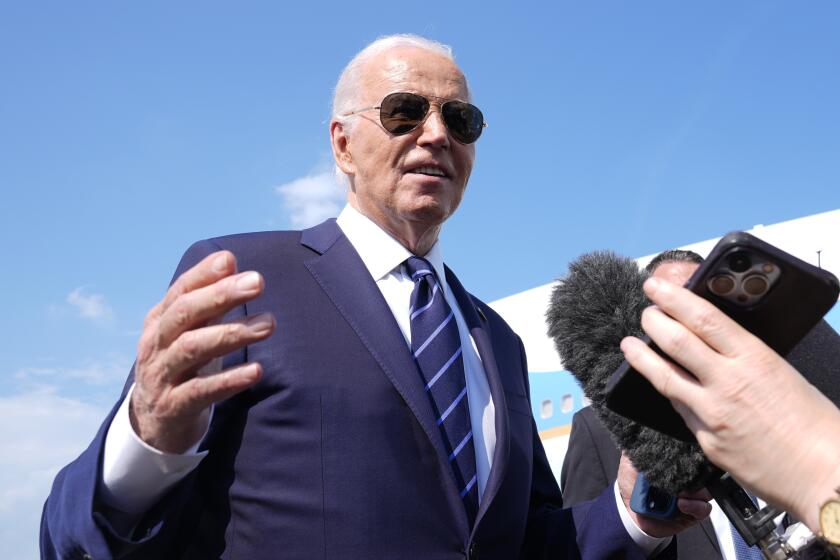Arizona law may prompt racial-profiling suit
Atty. Gen. Eric H. Holder Jr. said Sunday he might sue Arizona a second time if its new tough-on-illegal-immigrants law leads to racial profiling.
The nation’s top law enforcement officer said the federal government’s lawsuit against Arizona, filed last week, made scant mention of racial profiling because it focused on the stronger argument that the state law preempted the federal government’s responsibility in deciding immigration policies.
The Arizona law requires police to check the immigration status of people who are stopped for other reasons if they are “reasonably suspected” of being in the country illegally.
The measure is scheduled to take effect July 29. But the federal government is seeking a temporary injunction to block the law while its suit is being heard. A hearing on that request is set for July 22.
Holder said the U.S. had to take a variety of factors into account when drawing up immigration laws, including international relations and national security.
“And it is the responsibility of the federal government, as opposed to states doing it on a patchwork basis,” he said on CBS’ “Face the Nation.”
“It doesn’t mean that if the law, for whatever reason, happened to go into effect, that six months from now, a year from now, we might not look at the impact the law has had” and determine if there had been racial profiling, Holder said. “And if that was the case, we would have the tools and we would bring suit on that basis.”
In answer to a question, Holder denied suing Arizona for political reasons to brand Republicans as “anti-immigration” or “anti-Hispanic.”
“Not true at all,” he said.
Holder said the basis for the suit was a legal determination that the law was “inconsistent with the Constitution.”
In other news, Holder said a decision was pending on where — and how — to put self-proclaimed Sept. 11 mastermind Khalid Shaikh Mohammed and four alleged accomplices on trial. Opposition to Holder’s plan to try them in New York has officials searching for a new venue.
Holder said a military base in Virginia was one of “any number of possibilities,” but there were “real questions” as to whether a defendant who pleaded guilty in a military tribunal could be sentenced to death.
He also said the Obama administration still wanted to close the Guantanamo Bay detention facility — as it pledged to do within a year of taking office — but that it needed Congress to approve money to buy an underutilized prison in Thomson, Ill., and use part of that facility to house the detainees.
Asked if other places wanted the detainees, Holder said “a couple of other states” were interested but refused to identify them.
“I don’t want to necessarily talk about them now because I think we have a very firm commitment from the people in Thomson and from state officials in Illinois” to accept the terrorist suspects from Guantanamo, he said.
More to Read
Start your day right
Sign up for Essential California for news, features and recommendations from the L.A. Times and beyond in your inbox six days a week.
You may occasionally receive promotional content from the Los Angeles Times.






